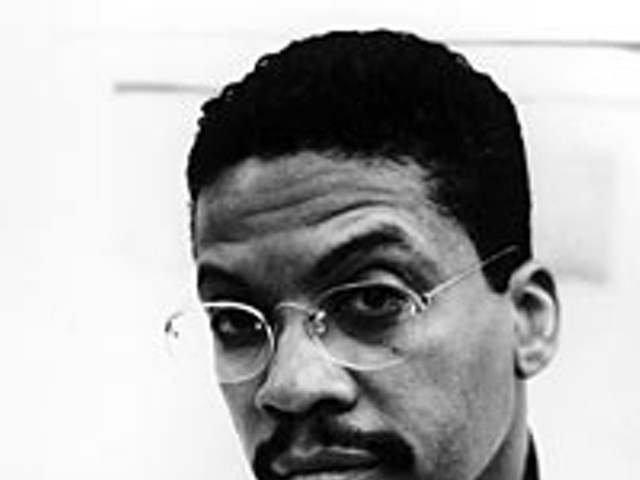Now that we are getting used to the prospect of a long and difficult foreign war, there are finally some signs that voters (the one-third of them who will bother to vote next week, anyway) are starting to pay attention to who Detroit’s next mayor will be.
Unfortunately, far fewer are studying the races for City Council, the nine men and women who are Detroit’s legislature. Without them, no mayor can do much of anything, good or bad, because they control the budget.
In the end, most voters end up picking vaguely familiar names, without any clear idea of what most stand for. This is in large part the fault of the city’s horribly flawed system for City Council elections.
The main problem is that all nine are chosen at large, to represent the entire city. Nobody has time to learn enough about all 18 candidates running next week. Worse, no council member has a special need to worry about any particular neighborhood. That means trying to help some poor slob with a small problem may not be worth it politically.
What would make much more sense would be to elect four councilmen at large and five by district. That means there would be one district councilman for each roughly 200,000 residents. To win re-election, they would have to do something to help the voters in their district.
As it is now, most of the council members live in a few affluent neighborhoods. (Ken Cockrel is an exception.) Scattered throughout the city are politically bizarre billboards that urge voters to re-elect all six incumbents running.
That’s enough to make a cynic out of a Carmelite nun. Think how absurd this is! Perhaps it would make sense if the present gang of six had made this into the land of milk and honey, but look around.
Can you imagine posters saying “Elect All Incumbent Congressmen! Support Trent Lott, John Conyers and Tom DeLay?” Hardly.
But even though, as the Detroit News properly reported the other day, our finest council members wasted much of one session worrying about ladybugs, rest assured, our incumbents all will be re-elected.
What about the other three spots? Happily, Sharon McPhail, who will finally get a chance to show what she is made of, is a shoo-in for one.
Unhappily, the bizarre Barbara-Rose Collins, who began her career on council 20 years ago, seems a cinch for another. Collins went on to spend four rocky years (1993-1997) in the U.S. House of Representatives.
There, she violated campaign-finance rules, was absent more than almost any other member, held a key fund-raiser in a strip bar and once missed a crucial vote because she refused to fly coach.
After Carolyn Cheeks Kilpatrick beat her soundly in a primary, the Almanac of American Politics summed up Barbara-Rose’s career by saying it was “undeniable she was just not up to being a member of Congress.”
Now she wants to come back where she started. Why? The $81,000 salary, I suppose. Is there any reason anyone should vote for her? Not on your life. Is she sure to win? Yep.
That leaves one final spot. If I could vote, the first person I’d choose is a steep underdog: State Rep. Hansen Clarke, who finished 12th in the primary. Clarke is an interesting man with a fresh outlook. Though a native Detroiter whose mother is African-American, his father was from India.
That, and life, have given him both an insider’s and an outsider’s perspective. “The entire system is set up to take care of the politicians and the establishment. It should be about the people,” says Clarke.
Politicians say those things all the time, but Clarke, 44, sounds like he means it. He’s had a complex life. He was a bright lad whose fortunes and self-esteem drifted downward after his father died. He dropped out of college and at one point he found himself on welfare.
Nevertheless he picked himself up; went back to college, won a scholarship to Cornell University, then to Georgetown law school.
He came home and got elected to the state Legislature in 1990. He admits he thought he was hot stuff. Two years later, he got a bucket of cold water when he lost in the primary. Clarke finally made it back to Lansing in 1998.
Now he wants to put his talents to work “listening to our citizens and rebuilding this city.” An expert on public procurement law, he’d like to use that knowledge to speed the removal of blighted buildings.
Most of all, he wants to get public officials to think of themselves as servants of the people, rather than vice versa. Anyone who has ever dealt with Detroit’s Stalinist bureaucracy knows how welcome that would be. Clarke is no stranger to self-promotion, but his attitude and energy would be very welcome.
Finishing well ahead of him in the primary were three slugs who were on the now-abolished Detroit School Board — Kwame Kenyatta, the Rev. David Murray, and the entirely odious Alonzo “Lonnie” Bates.
Bates was by far the worst of these, with a documented record of abuses including a taxpayer-funded junket to Acapulco (!) just as the Legislature was abolishing the school board.
Once, Master Bates was asked why he always stuck the taxpayers for first-class airline travel. “I’m a big man. I should be able to ride first-class,” he said. If this specimen is able to get at the public purse, Detroit may indeed be doomed, and those who voted for him will deserve it.
Royal Oak note: If you live there, make sure you vote Tuesday, and vote to re-elect City Commissioner Marie Donigan, a remarkable civil servant who risked her political career to stand up for human rights last spring when other leaders displayed spines of macaroni.
Jack Lessenberry opines weekly for the Metro Times. E-mail [email protected]




